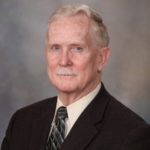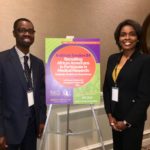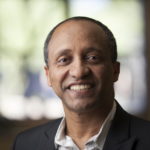Mayo Clinic diversity efforts include engaging with American Indian groups, addressing African-American underrepresentation in medical research
Mayo Clinic engages with American Indian groups in accordance with true Mayo values
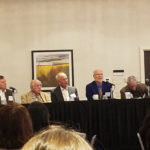 In October 2018 the Mayo Clinic Office of Health Disparities Research’s Native American Research Outreach (NARO) program hosted a conference entitled “A Path toward Better Health among Bemidji Area American Indians.” Participants included representatives of six tribal nations, 10 Native health and social service agencies and 16 Mayo Clinic departments. The conference opened discussion between and among Mayo Clinic and the more than a dozen northern plains tribes and tribal and government agencies.
In October 2018 the Mayo Clinic Office of Health Disparities Research’s Native American Research Outreach (NARO) program hosted a conference entitled “A Path toward Better Health among Bemidji Area American Indians.” Participants included representatives of six tribal nations, 10 Native health and social service agencies and 16 Mayo Clinic departments. The conference opened discussion between and among Mayo Clinic and the more than a dozen northern plains tribes and tribal and government agencies.
Topics included:
- Substance and physical abuse
- Chronic diseases and prevention
- Mental and family health services
- Health policy and services
- Telehealth
- Improved patient and intersystem communication
- Child abuse
- Telemedicine in oncology, virtual consultations
- Remote coordination and interventions in brain rehabilitation
- Minimally disruptive medical practices
- Medical and professional education opportunities
- Undergraduate education and training opportunities
- Patient education resources
- Cancer epidemiology, genetics and family studies
- Diabetes neuropathy and neuromuscular diseases
- Child and adolescent depression and anxiety
- Cancer treatment trials
NARO director Wesley Petersen, Ph.D., who has built relationships with participating groups in the last decade, says the conference provided an opportunity to find common ground across different values orientations, health beliefs and community health practices. “We had meaningful discussions about the tribes’ priority health concerns and how they might be addressed collaboratively through clinical expertise, education and research.”
Most of the tribes agreed to participate in an advisory board to further explore their health concerns and how to address them. Next steps include writing proposals, seeking funding to execute projects, and seeking Mayo Clinic staff to travel to Indian communities to better understand local circumstances, resources and constraints.
Dr. Petersen explains that American Indians are an underserved, health disparities population and serving them aligns with true Mayo Clinic values. “When the Mayo brothers initially expressed what has become our primary value, ‘The needs of the patient come first,’ the focus was on the people of the community and region. An individual’s health circumstance was really the only consideration that mattered.
“Going beyond the front door [of Mayo Clinic] is consistent with our values and can benefit the American Indian population’s health, allow for the appropriate dissemination of knowledge across diverse populations, and advance scientific and medical knowledge of disease, how those diseases are represented in populations and how they can best be treated across populations.”
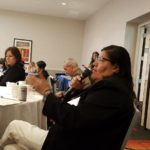
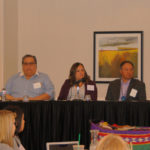 Represented tribes and Native health, research, service and education programs:
Represented tribes and Native health, research, service and education programs:
- Red Lake Nation
- White Earth Nation
- Lower Sioux Indian Community
- Fond du La Band of Lake Superior Chippewa
- American Indian Cancer Foundation
- Great Lakes Inter-Tribal Council (Great Lakes Inter-Tribal Epidemiology Center)
- Bemidji Area Indian Health Service
- Leech Lake Band of Ojibwe
- Mille lacs Band Ojibwe
- Spirit Lake Nation Tribal Health
- Ho Chunk Nation Tribal Health
Mayo Clinic addresses underrepresentation of African-Americans in medical research at Healthy Churches 2020
LaPrincess Brewer, M.D. (CV ’16), Department of Cardiovascular Medicine at Mayo Clinic in Rochester, and Christopher Pullins, M.D. (FM ’03), Department of Family Medicine at Mayo Clinic in Arizona, led a medical education institute at the Healthy Churches 2020 National Conference at Hilton Head, South Carolina, in November. The three-hour session was entitled “Recruiting African-Americans to Participate in Medical Research: Methods, Models and Experiences.” Principal investigators from all three Mayo Clinic locations also presented.
Healthy Churches 2020 is an annual national conference for faith leaders and health professionals to increase and improve the skill and knowledge of church nurses, ministers and others responsible for leading congregational and community health ministries. Healthy Churches 2020 is an initiative of the Balm in Gilead, Incorporated, an organization that promotes health and wellness through outreach to African-American faith communities.
Dr. Brewer coordinates a cardiovascular health and wellness intervention study based in African-American faith communities — Fostering African-American Improvement in Total Health (FAITH!) in the Rochester and Minneapolis/St. Paul, Minnesota, areas. Dr. Pullins coordinates a health program at an African-American congregation in Peoria, Arizona.
Participation of Mayo Clinic investigators in Healthy Churches 2020 was sponsored by the Office of Health Disparities Research, which coordinates the work of Mayo Clinic scientists to define and address health disparities.
New programs to recruit diverse students
A key priority for Mayo Clinic College of Medicine and Science is attracting and recruiting diverse students, especially those underrepresented in medicine and research (UMR) to its schools. According to the Juanita Kious Waugh Executive Dean for Education, Fredric Meyer, M.D. (NS ’87), this is crucial to meet the needs of patients and to develop a diverse workforce and faculty.
Dr. Meyer is working with Yonas Geda, M.D. (P ’99, P-CON ’00, CLRSH ’06), the college’s new associate dean for Diversity and Inclusion, on this goal. To date, they’ve established several new initiatives:
- Undergraduate Plummer Scholars Program — Establish longitudinal relationships with high-potential undergraduate students from historically black colleges who aspire to become physicians or scientists. Students will be paired with outstanding Mayo medical students for mentorship.
- William Worrall Mayo Scholars Program — Engage with diverse college students scoring in the 90th percentile or higher on the MCAT to expand UMR applicants to Mayo Clinic School of Medicine. The program includes an immersion visit to Mayo Clinic and pairing students with Mayo physician and scientist mentors for support.
- Wilson Scholars Program — Mentor meritorious UMR students who have done visiting clerkships at Mayo Clinic and met United States Medical Licensing Examination (USMLE) performance thresholds. Students will be assigned mentors to facilitate their career aspirations.
Mayo Clinic School of Medicine adds diversity-focused mentorship pilot program in Rochester
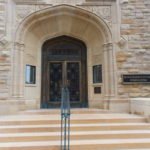 The Mayo Clinic Office of Diversity and Inclusion is working to identify physicians who can provide medical students with individual, diversity-centered mentoring. In a one-year pilot program available to Rochester-based medical students, students will be paired with physician mentors based on diversity attributes that are important to both. A survey of students revealed these desired attributes:
The Mayo Clinic Office of Diversity and Inclusion is working to identify physicians who can provide medical students with individual, diversity-centered mentoring. In a one-year pilot program available to Rochester-based medical students, students will be paired with physician mentors based on diversity attributes that are important to both. A survey of students revealed these desired attributes:
- African-American, female leadership, cultural (African/Somali)
- A female surgeon or a surgeon who is a woman of color, especially in cardiothoracic surgery and general surgery
- Low socioeconomic status before entering medical school
- Mothers
- LGBTQIA
- Latino
- Minority woman of African descent
- Age (e.g., started practicing as a physician at age 50 or older)
Mayo Clinic Graduate School of Biomedical Sciences received NIH grant renewal to train students underrepresented in science
Mayo Clinic Graduate School of Biomedical Sciences received the renewal of a five-year, $2.2 million National Institutes of Health federal grant to continue its efforts to change the face of research to include more scientists from backgrounds underrepresented in science.
According to the National Science Foundation, underrepresented groups in science are:
- Women
- People with disabilities
- African-Americans
- Hispanics/Latinos
- American Indians or Alaska Natives
“We are extremely proud of our 26-year collaboration with the NIH and our collective long-term commitment toward ensuring America’s future biomedical research workforce reflects the rich diversity of our nation,” says Louis (Jim) Maher III, Ph.D. (BIOC ’95), principal investigator of the grant and dean of Mayo Clinic Graduate School of Biomedical Sciences and the Bernard Pollack Professor of Biochemistry and Molecular Biology in the Mayo Clinic College of Medicine and Science.
The renewed grant is one of three major NIH grants that are combined with funding from Mayo Clinic to support the school’s diversity mission. Mayo Clinic Graduate School of of Biomedical Sciences uses the renewed NIH grant to give these students a better chance at success through a transformative program called the Initiative for Maximizing Student Development. Participants are selected from the student body of almost 200 pre-Ph.D. and pre-M.D.-Ph.D. students at the school’s campuses in Arizona, Florida and Minnesota.
The Initiative for Maximizing Student Development program provides a two-year fellowship at the outset of a student’s Ph.D. training, focusing on professional development, communication skills, lab studies, and personalized research mentorship and counseling. The program has proven successful, with more than 90 percent of participants graduating with a Ph.D. or M.D.-Ph.D. in their intended biomedical research discipline.
“We have the opportunity to transform the face of biomedical research with students from diverse backgrounds who are extremely talented and bright but who may not have had as much exposure to research,” says Karen Hedin, Ph.D. (PHAR ’95), co-leader of the renewed grant, director of the Regenerative Sciences Training Program and associate director of education for the Mayo Clinic Center for Regenerative Medicine.
